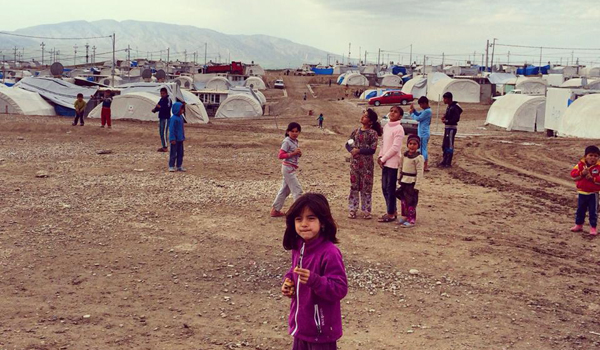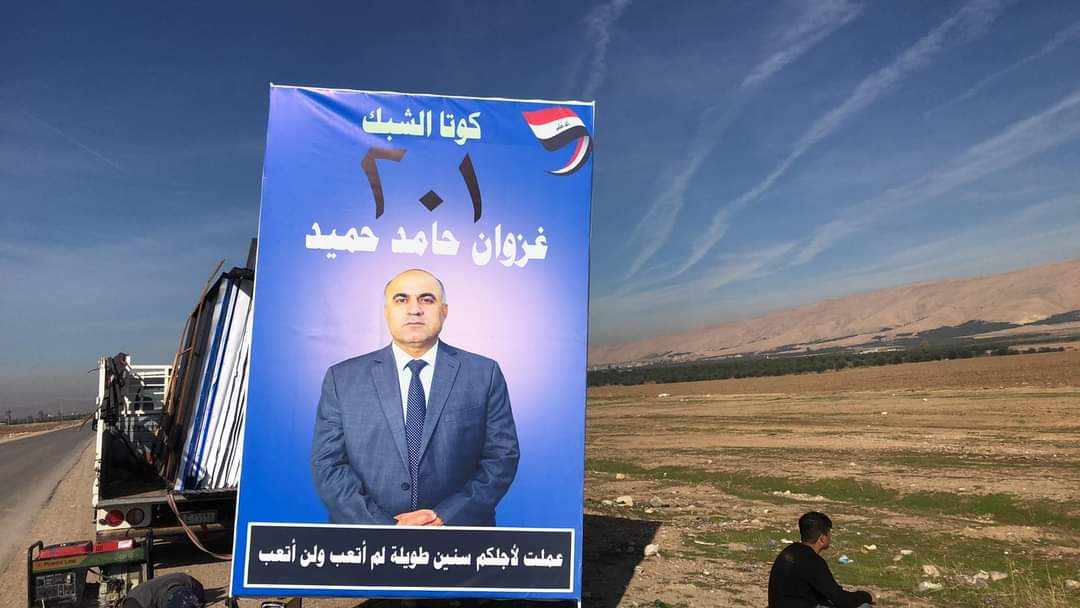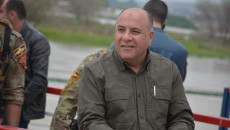Voters from the Shabak component are looking forward to implementing their demands that have accumulated for years through the Nineveh Governorate Council elections, including the problem of water scarcity and the problems of the education and health sectors.
The Shabak component in Nineveh has a single seat out of 29 provincial council seats, whose members are scheduled to be elected on December 18, 2023.
“The provincial council elections are crucial for us and we will participate in the hope of solving the problems that people have been suffering from for years,” Ibrahim Al-Daoudi, a Shabak citizen from Bashiqa district, told KirkukNow.
He says that one of the main demands is for the ballot box to become the beginning of addressing the problem of water scarcity, which requires the implementation of new projects and the rehabilitation of the water distribution system.
Another problem is the delay in establishing a hospital with a capacity of 400 beds in Bashiqa. “An order was issued for its construction but it did not enter into force, so citizens are forced to visit hospitals in neighboring cities.”
Al-Daoudi believes that the opportunity has come for them to elect candidates and parties that can play a role in implementing the projects.
According to the Independent High Electoral Commission IHEC statistics, five candidates are competing to win the seat of Shabak quota seat, and several Shabak candidates are participating in the framework of various lists and alliances.
The Shabak community in Iraq, an ethno-religious group, is estimated at about 300,000 or 350,000 people, 60% of them follow the Shi’a sect, while the rest are Sunnis. The community’s religious practices blend elements of Islam and local beliefs.
They are scattered in the regions of Bashiqa, Bartella, Hamdaniya, Tilkef, some neighborhoods of Mosul, and some villages of the Nineveh Plain. Like other ethno-religious minorities, they faced atrocities at the hands of the extremist militants of the Islamic State of Iraq and Syria ISIS.
According to the statistics of the Bashiqa local administration, 64% of the population of the district are Shabak and live in the center of the district and 24% in the villages.
Moayad Khalil, a school principal in Bashiqa, says that they are suffering from “hundreds” of pending problems, including the absence of education sector projects, as most of Bashiqa’s schools need renovation. “Our school was established in 1985 and needs expansion and renovation, like most other schools.”

“The Shabak youth are marginalized. They have no job opportunities and no services, except for a small playground in Bashiqa,” according to Khalil, who spoke about many other demands, such as the lack of medical personnel and medicines, as there is a single health center in the Bashiqa center that receives patients from the town villages and other areas.
Back in the May 2018 elections, 15 Shabak candidates won only two seats, one per quota system and another by Shiite Alliance of al-Fatih.
The Shabak who consider themselves ethnically Kurds, slammed the Kurdish political parties for not taking their case seriously and nominating no candidate from the Shabaki community for 2021 General Elections.
Bashiqa is a sub-district affiliated with Mosul District in Nineveh Governorate, (12 kilometers northeast of the city of Mosul). The population of Bashiqa is estimated at more than 149,000 people, and both the Ezidi (Yazidi) and Christian components live there, alongside the Shabak.
Nearly 26,000 people in Bashiqa are entitled to vote, which is equivalent to 40 percent of the district’s voters who have updated their records and received the biometric voter card. According to unofficial statistics, the number of Shabak voters throughout Nineveh is estimated at 35,000 people.
Ghazwan Hamed, commissioner of Bashiqa district and a candidate for the Nineveh Provincial Council elections, told (KirkukNow) “The work program of the Shabak candidates gives priority to implementing projects in the health and education sectors and projects related to youth in areas where youth constitute a majority.”
He pointed out that the district directorate “made every effort in its power to solve problems.”
The Shabak component also has one seat in the Iraqi Council of Representatives under the quota system. Like other communities, the Shabak were subjected to attacks by militants (Islamic State in Iraq and the Levant ISIL), and most of them were displaced to the Iraqi Kurdistan Region IKR, where the Shabaks, along with the Kakai, Turkmens, and Armenians, constitute 10 percent of the total of more than 600,000 Internally Displaced People IDPs in the IKR.






